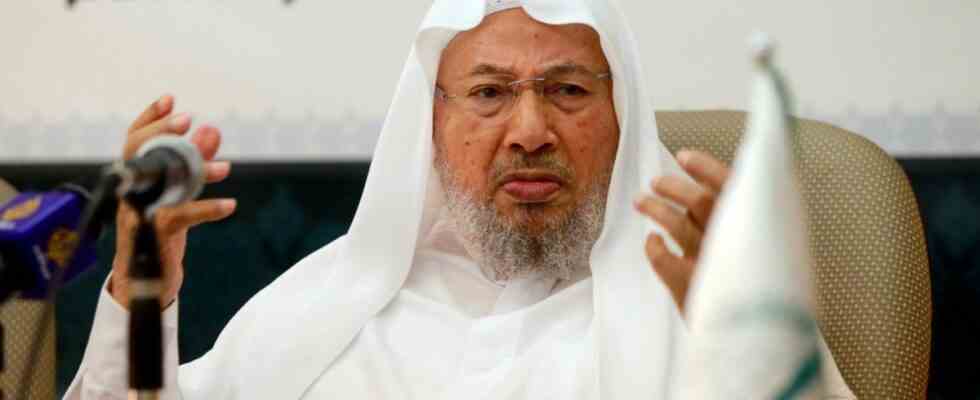Theologian, thought leader, pop star of the faithful. The many names given to Yusuf al-Qaradawi in the Arab media after his death show how many roles the TV theologian held in the course of his life. It all started with his opposition to Gamal Abdel Nasser’s Egyptian regime. Even as a young man, he was repeatedly arrested for his sermons, and in 2013 he finally went into exile in Qatar. An Egyptian court sentenced him to death in absentia. But with the emergence of Islamist movements and thanks to the Qatari news channel Al Jazeera, millions of viewers followed him every week. “The Sharia and Life” was the name of his program, which dealt with both everyday issues and big politics. “Al-Qaradawi was the voice of political Islam. His fatwas were never purely religious in nature, but corresponded to the interests of Qatar and served to position the Muslim Brotherhood,” says the Libyan journalist Ahmed Elumami. Shortly before the uprising against Libya’s head of state Muammar al-Gaddafi, the authorities turned off the power grid without further ado when al-Qaradawi went on the air.
The regimes of North Africa and the Middle East saw the greatest threat to their power in Muslim Brotherhoods like al-Qaradawi. Gaddafi, Ben Ali in Tunisia and Bashar al-Assad in Syria used all their might to suppress the creeping Reislamization of the population, which was propagated by Al Jazeera and other satellite broadcasters from the Gulf States. Al-Qaradawi used his show to promote his idea of an Arab empire stretching from Morocco to Iraq. As a theocracy, of course, similar to what the ideologues of the Islamic State were striving for. He railed against homosexuality at length, but not against genital mutilation. His conservative worldview became mainstream for millions with Al Jazeera – it included the obedience of wives to their husbands, whom he explicitly allowed to cheat on.
Per fatwa for terror against Israel
But al-Qaradawi’s supporters point to his clear rejection of the violence against civilians propagated by al-Qaeda and the Islamic State. On the other hand, he legitimized suicide attacks against Israel by fatwa. Together with 50 scholars from the region, the Egyptian led the “Union of Muslim Legal Scholars,” which denied the state of Israel’s right to exist. Al-Qaradawi’s advocacy of the Holocaust and hate speech against Gulf royalty even led to Qatar’s political isolation. Since 2017, al-Qaradawi has been considered a terrorist godfather in his homeland, but also in Bahrain, Saudi Arabia and the United Arab Emirates. “Terror, occupation and resistance” were the questions to which al-Qaradawi wanted to find an answer. And he meant the crimes of the colonial powers and Israel. He was open within the Muslim world, as chairman of the scholars’ initiative he worked with Shias, Sunnis and Ibadis. But after the uprisings against Muammar al-Gaddafi and Bashar Assad, supported by the media and arms of Qatar, more radical groups took over the sovereignty of opinion in the region.
An era ends with the death of al-Qaradawi. “Supporters of the former regime are celebrating his death, Islamists are mourning and Salafists have mixed feelings,” is how journalist Ahmed Elumami describes reactions in Libya to al-Qaradawi’s death. “The Salafists dominate religious discourse and reject the politicization of religion pursued by the Muslim Brotherhood.”
Many young people in the region do not know al-Qaradawi, but reject parties close to the Muslim Brotherhood, such as Ennahda in Tunisia. Its officials had sent at least 6,000 young men to fight in Libya and Syria, accompanied by heroic reporting on Al Jazeera.

